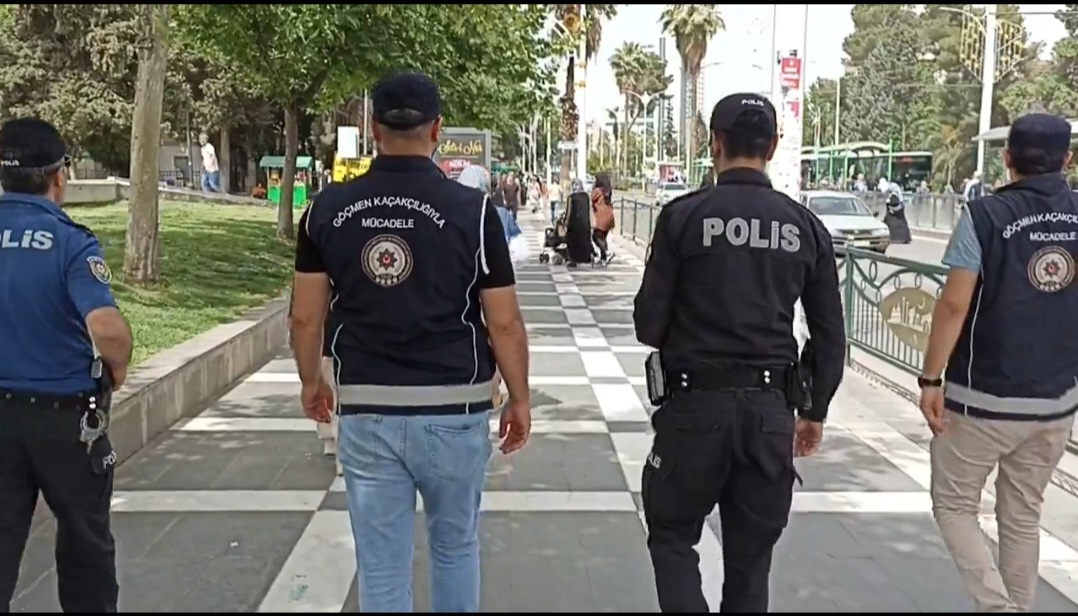Russian sanctions avoidance and OFAC’s announcement / Haberin Peşinde Urfa
The western sanctions, which spread in waves of precautions in the first weeks after the invasion of Russia, tried to remove Russia’s largest banks, energy and defense companies, hundreds of senior officials and the richest businessmen from the global market.
Russian sanctions and MIR issue. The western sanctions, which spread in waves of precautions in the first weeks after the invasion of Russia, tried to remove Russia’s largest banks, energy and defense companies, hundreds of senior officials and the richest businessmen from the global market.
As part of the broader push to avoid sanctions, Western efforts will target people who manage payments on behalf of the Russians and businesses that help build parallel payment networks for Moscow.
The US and EU are increasing pressure on Turkey to prevent Russia from avoiding sanctions amid concerns that the country’s banking sector is a potential backdoor for illegal financing.
“RuHSR authorizes OFAC to impose prohibitive sanctions on anyone found to be financially assisting, sponsoring, or providing financial, material or technological support or goods or services to or for any activity,” the U.S. Department of the Treasury said in a statement on Thursday. “Deceptive or structured transactions, or transactions to circumvent any United States sanctions, or any person whose property and proprietary interests are blocked under RuHSR, are subject to sanctions under RuHSR. OFAC stands ready to use these targeting authorities in response to supporters of Russian sanctions avoidance, including in Russia’s efforts to expand the use of the NSPK or MIR National Payment System outside the territory of the Russian Federation.”
The US focuses on 5 important Turkish banks integrated into Russia’s domestic payment system Mir. The pressure on Turkey emerges as western capitals turn to stricter enforcement of existing sanctions instead of taking new measures.
The West acknowledges that the economic sanctions imposed after Vladimir Putin’s invasion of Ukraine in February have not done as much damage to the Russian economy as they had hoped. But they continue to close the gaps in existing measures, gradually tightening the Kremlin’s financial lifelines.
In guidance released Thursday, the U.S. Treasury Department warned that non-U.S. financial institutions risk “supporting Russia’s efforts to evade U.S. sanctions through the expanded use of the Mir National Payment System outside the territory of the Russian Federation.”
The statement added that the U.S. Office of Foreign Assets Control is ready to exercise its “targeting powers,” such as imposing blocking sanctions in response to those who support Russia’s avoidance of sanctions, including those related to Mir. This could mean serious political and economic problems for Turkey, which is a NATO member under certain obligations.
President of Turkey, Mr. Recep Tayyip Erdogan’s refusal to sign sanctions against Russia and his recent commitment to deepen economic cooperation with Moscow has alarmed his western allies. Erdogan, who will meet with Putin on Friday, said last month that there was “serious progress” in expanding Mir in Turkey.
Turkey’s foreign ministry said that although Ankara has long had a policy of imposing only UN-backed sanctions, “we are equally determined in our policy of not allowing Turkey to become a conduit for evading sanctions.”
Wally Adeyemo, the US deputy secretary of the treasury, warned Turkish businesses last month about “Russia’s attempts to use your country to evade sanctions” and the risks of “trading with sanctioned Russian-based entities”.
In addition to Turkey, pressure for potential backdoors to avoid sanctions has targeted countries in the Caucasus, Central Asia and the Gulf, officials said. Russia will try every door. “Every country needs to be careful that we follow this up and talk to them,” said James O’Brien, US State Department sanctions coordinator.
Its impact in Turkey. Last week, numerous people posted pictures on Telegram channels stating that large five-star hotels frequented by Russian tourists in the Turkish resort of Antalya do not accept Mir cards.
Dmitry Danilenko, editor-in-chief of tour portal TourDom, told a Russian news site that many Turkish hotels have stopped accepting Mir cards, but that this is not a general decision that applies to every resort:
“Indeed, payments have been terminated in some hotels. In fact, travel agencies received signs, messages and e-mails on this subject.”
“As for the acceptance of Mir cards throughout Turkey, the cards of this system continue to be accepted. You can withdraw money from ATMs and pay in stores with them. Everything is as before, it depends on which Russian bank issued the card.”
Danilenko said that some Turkish banks that process payments may fear exposure to secondary sanctions imposed by the US and EU against Russian financial institutions. Others suggested that some hotels may have foreign investors unwilling to face sanctions.
Conclusion? The US focuses on 5 important Turkish banks that are integrated into Russia’s local payment system MIR. The pressure on Turkey emerges as western capitals turn to stricter enforcement of existing sanctions instead of taking new measures.
Mr. Erdogan’s refusal to sign sanctions against Russia and his recent commitment to deepen economic cooperation with Moscow have alarmed his western allies. Erdogan, who will meet with Putin on Friday, said last month that there was “serious progress” in expanding Mir in Turkey.
The U.S. Treasury Department warned that there is a risk that non-U.S. financial institutions “support Russia’s efforts to evade U.S. sanctions through the expanded use of the Mir National Payment System outside the territory of the Russian Federation.”
The statement added that the U.S. Office of Foreign Assets Control is prepared to use “targeting authorities” such as imposing blocking sanctions in response to those who support Russia’s avoidance of sanctions, including those related to Mir.
NATO ally Turkey can be expected to result in a “crossfire” between US sanctions and Russian influence. The consequences of this are unknown, but for Turkey, which is already suffering from its own economic problems, it could be harsh no matter what.
Kaynak: Tera Yatırım-Enver Erkan
Hibya Haber Ajansı











